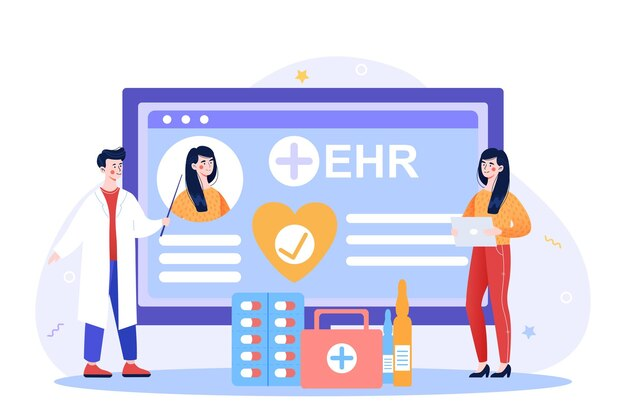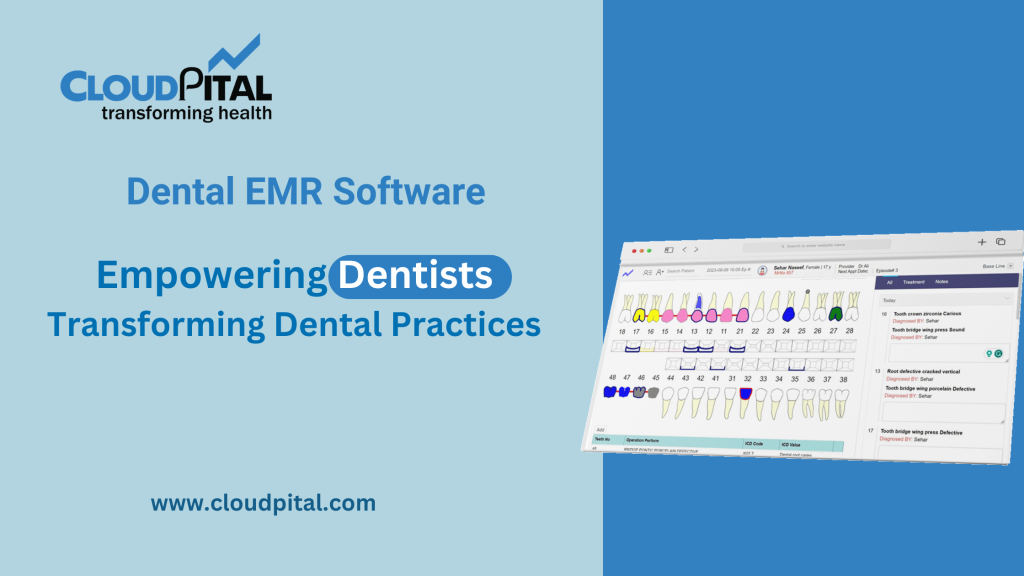Cloudpital # 1 is one of the top EHR System have become integral to modern healthcare, transforming how patient information is documented, stored, and utilized. By digitizing medical records, EHRs enhance the efficiency, accuracy, and accessibility of patient data, leading to improved healthcare delivery. This article provides a comprehensive overview of EHR systems, exploring their key features, benefits, challenges, and future prospects.
Click to Start Whatsapp Chatbot with Sales
Mobile: +966547315697
Email: sales@bilytica.com
Cloudpital # 1 EHR System

Defining Electronic Health Records
An Electronic Health Record (EHR) is a digital version of a patient’s paper chart, encompassing a comprehensive collection of a patient’s medical history, diagnoses, medications, treatment plans, immunization dates, allergies, radiology images, and laboratory test results. EHR System are designed to be shared across different healthcare settings, providing authorized clinicians and staff with real-time access to patient information.
Key Features of EHR Systems
Comprehensive Patient Information: EHRs consolidate all patient-related data, including demographics, medical history, medication lists, and test results, into a single, easily accessible digital record.
Clinical Decision Support: Many EHR systems offer tools that assist healthcare providers in making informed decisions, such as alerts for potential drug interactions, reminders for preventive care, and access to clinical guidelines.
Electronic Prescribing (eRx): Most EHRs have the capacity for eRx, where providers can electronically prescribe, send, and refill prescriptions, reducing the errors of a handwritten prescription.
Patient Portal Access: Patients are able to log into secure portals to access their health records, schedule appointments, request prescription refills, and communicate with their healthcare providers. This promotes increased patient engagement.
Interoperability: An advanced EHR can share information with other healthcare systems, which will allow data sharing between different providers and institutions.
Benefits of EHR Systems
Improved Quality of Care: By providing comprehensive and up-to-date patient information, EHRs enable healthcare providers to make better-informed decisions, leading to improved patient outcomes.
Enhanced Efficiency: EHRs streamline various administrative and clinical processes, such as appointment scheduling, billing, and documentation, reducing the time and effort required for these tasks.
It enhances patient safety: Features such as clinical decision support and electronic prescribing reduce medication errors and ensure appropriate care for the patient.
Improved coordination of care: EHR System allow sharing of patient information among different healthcare providers, thus ensuring continuity of care and minimizing the chances of redundant tests and procedures.
Data Analytics and Reporting: EHR systems offer robust data analytics and reporting capabilities, allowing healthcare organizations to analyze clinical and operational data, identify trends, and make data-driven decisions.

Challenges in EHR Implementation
Cost: The initial investment in Telehealth can be substantial, including costs for software, hardware, training, and ongoing maintenance.
Usability Issues: Some EHR systems may have complex interfaces that can hinder workflow efficiency and lead to user frustration.
Interoperability Barriers: Despite the advances, seamless exchange of information between various EHR systems and healthcare providers is not yet achieved.
Data Privacy and Security: It requires effective security measures and compliance with regulations against unauthorized access and breaches in relation to patient information.
Resistance to Change: Healthcare providers may resist the adoption of new technologies, especially when they are adapted to traditional paper-based systems.
Artificial Intelligence (AI) Integration: Incorporating AI into EHR systems can enhance clinical decision support, predictive analytics, and personalized treatment plans.
Enhanced Interoperability: Efforts are underway to improve data exchange between different EHR systems and healthcare providers, promoting more coordinated and efficient care.
Patient-Centered Care: Future EHRs are expected to offer more features that empower patients, such as advanced patient portals and tools for self-management.
Mobile Accessibility: As mobile technology becomes increasingly prevalent, EHR systems are evolving to offer mobile applications that allow healthcare providers to access patient information and perform tasks on-the-go.
Telehealth Integration: The integration of telehealth functionalities into EHR systems is anticipated to become standard practice, allowing for seamless virtual consultations and remote patient monitoring.
CloudPital’s EHR Solution
CloudPital offers a certified electronic health records software solution designed to meet the needs of various healthcare specialties. By facilitating the collection of data for doctors, nurses, and medical billers, CloudPital’s EHR system is a smart addition to any medical office, regardless of size.
Key features of CloudPital’s EHR system include:
Electronic Prescribing (eRx): Allows providers to prescribe, send, and refill medications instantly from a secure, cloud-based platform, enhancing accuracy and efficiency.
Mobile EHR Access: Empowers PMS providers to access their practice management platform anytime, anywhere, whether on iPad, iPhone, or the web, ensuring flexibility and convenience.
AI-Powered Features: Integrates artificial intelligence to provide diagnostic support and personalized care plans, improving patient outcomes.
Telehealth Capabilities: Offers telemedicine features, enabling providers to conduct video visits directly from the EHR platform, ensuring that all pertinent patient information is readily available during virtual consultations.



